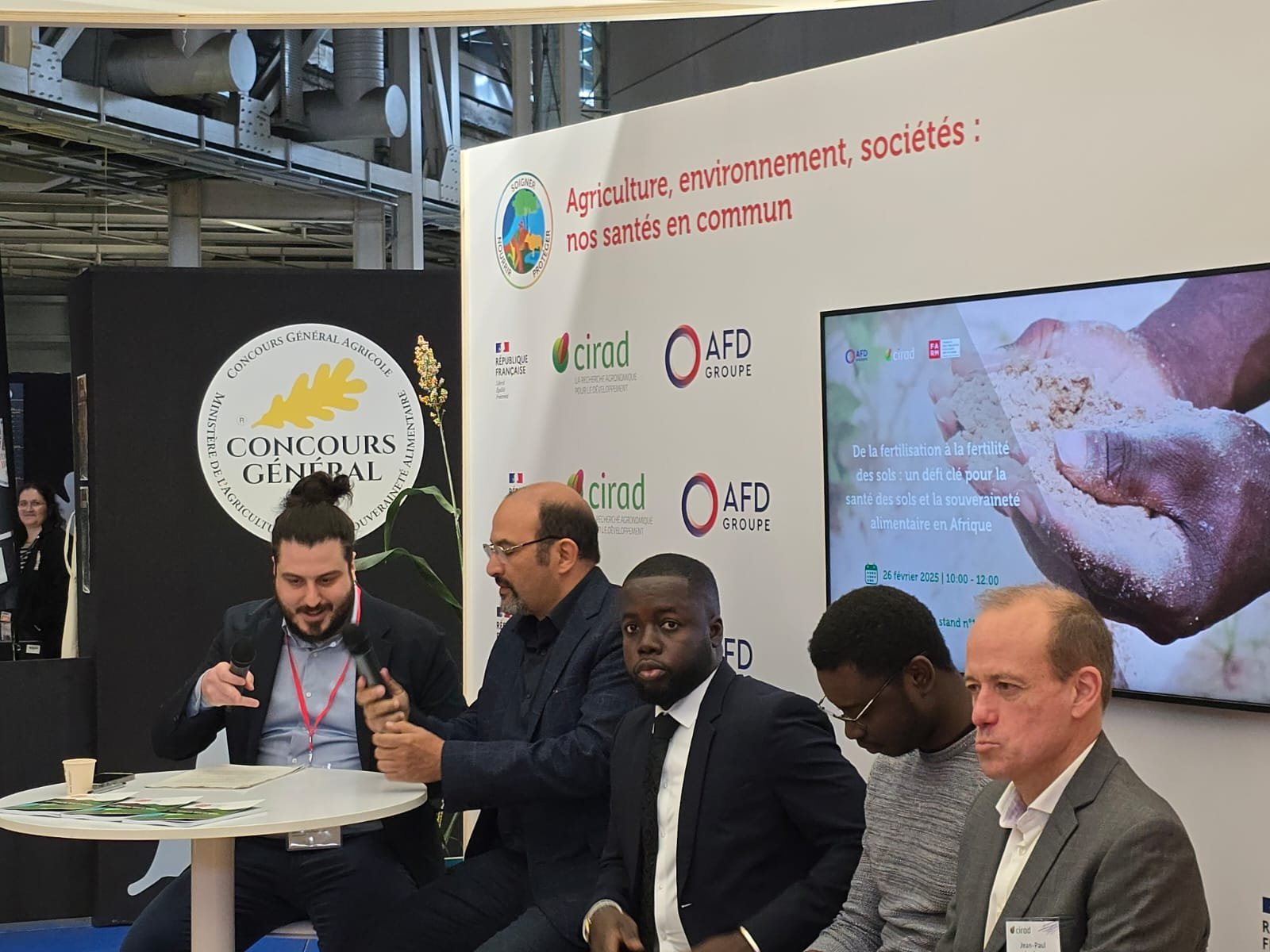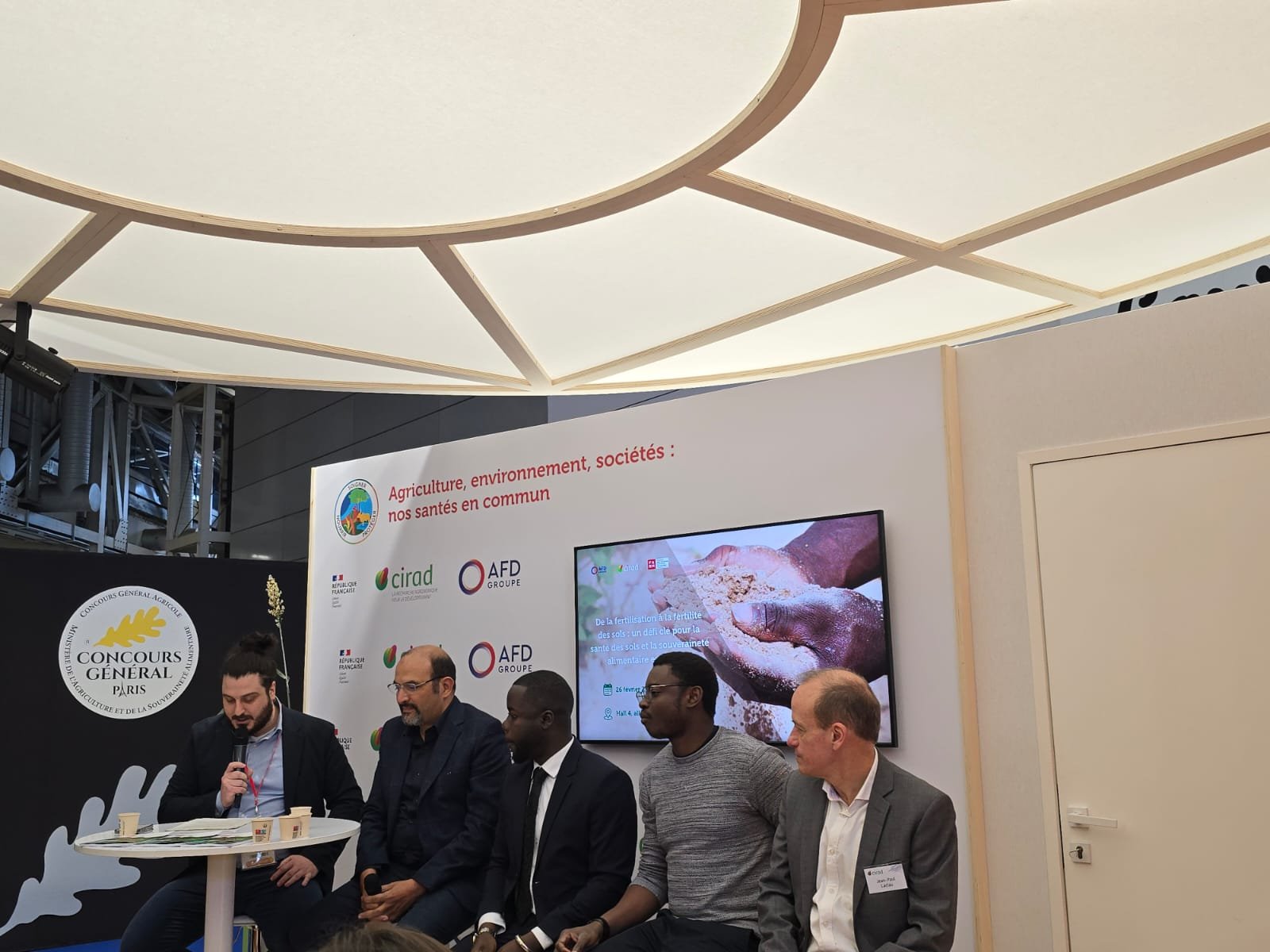Workshop: Africa Facing the Challenge of Renewing Soil Fertility for Food Sovereignty – Integrated Approaches and Solutions
As part of the International Agricultural Show in Paris, held from February 22 to March 2, the French Development Agency (AFD) and the Agricultural Research for Development (CIRAD) organized an important workshop on Wednesday, February 26, under the title “From Fertilization to Soil Fertility: A Key Challenge for Soil Health and Food Sovereignty in Africa.” This event provided an opportunity to reaffirm that soil health is not merely an environmental issue but rather the cornerstone of food security and sustainable development in Africa.

Alarming Figures and Major Challenges …
During the workshop, Dr. Rachid Mossadek, a senior researcher at the National Institute of Agricultural Research (INRA) and ICARDA, presented an in-depth diagnosis of soil conditions in Africa. He revealed that 65% of African agricultural land suffers from degradation, while 25% is severely degraded. These figures necessitate a deep reassessment of soil health management practices, urging the adoption of a more integrated approach that smartly combines both organic and mineral inputs to ensure the sustainability of agricultural production.
Dr. Mossadek also highlighted that fertilizer usage levels in Africa remain critically low, not exceeding 20 kg per hectare in many African countries, compared to 200 kg per hectare in Europe and other regions.
The Moroccan agricultural expert explained that the lack of fertilization, particularly nitrogen, potassium, and phosphate fertilizers, directly impacts soil fertility and crop productivity, threatening food security for millions of people.
Towards Solutions Rooted in African Reality…
Dr. Mossadek emphasized that effective solutions for restoring soil fertility must be locally driven, emerging from the needs of African farmers themselves, and involving all agricultural stakeholders. He presented Morocco’s Green Generation strategy as a successful model, which has implemented conservation agriculture over one million hectares, serving as an example that other African countries could benefit from.
The workshop also discussed Senegal’s experience in managing soil organic matter. The Director of Agriculture of Senegal showcased the country’s efforts to promote organic fertilizer use and improve sustainable fertilization techniques in alignment with soil and environmental conservation.

An Integrated Approach Combining Fertilization and Agriculture…
Based on a study conducted by the FARM Foundation on soil fertility renewal in West Africa, the workshop underscored the need for an integrated soil fertility management approach. This approach includes organic fertilization methods while incorporating environmentally friendly agricultural practices when necessary.
In this context, Dr. Rachid Mossadek highlighted several successful initiatives, including:
The Moroccan Ministry of Agriculture’s ambitious Green Generation strategy focusing on conservation agriculture.
The “Al Moutmir” program and the “Toubkal” project, which support sustainable agricultural techniques.
Efforts by the Moroccan Association for Conservation Agriculture and other private and public partners working to promote agricultural techniques that enhance soil fertility without harming natural resources.
Towards a Future Vision for African Soil Health…
Workshop participants concluded that achieving food sovereignty in Africa will not be possible without restoring soil health, which requires serious investments in scientific research and the adoption of smarter and more sustainable agricultural policies. They also stressed the importance of supporting farmers through training and advisory programs, enabling them to better understand modern fertilization techniques and integrated soil fertility management.
Ultimately, soil health remains a collective responsibility that demands coordinated efforts between governments, researchers, agricultural organizations, and the private sector. By enhancing cooperation among African nations and leveraging successful experiences, a real transformation towards more sustainable agriculture, healthier soils, and a more secure food future for the continent’s f
uture generations can be achieved.
#almouhitalfilahi


